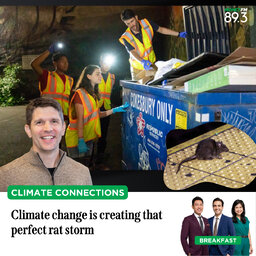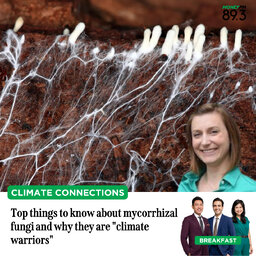Climate Connections: Vulture Restaurants - Providing a lifeline for critically endangered vultures in Cambodia
Vultures are often misunderstood and feared as they are often pictured tearing the remains from rotting carcasses. But as nature’s critical clean-up crew, vultures play a vital role in maintaining the delicate balance of ecosystems and are intrinsically linked to human health. Evolved to be scavengers, they curb the spread of dangerous diseases like anthrax and cholera by consuming fresh carcasses riddled with potential pathogens and bacteria.
Poisoned, poached, electrocuted and edged out of their habitat, vultures are no safer above ground than on it. These highly intelligent birds are treading a very thin line between existence and extinction.
However, the Cambodia Vulture Working Group’s recent report reveals significant progress in the conservation of three Critically Endangered vulture species: the White-rumped Vulture, Slender-billed Vulture, and Red-headed Vulture. In June 2023, the Minimum Population Estimate was recorded at 132 vultures across the three species, marking a stabilising trend after years of decline.
On this episode of Climate Connections, Oliver Gray-Read, Technical Advisor at NatureLife Cambodia, who has vultures deeply intertwined into the work he does, particularly in Cambodia - where the group has re-introduced the “vulture restaurant” initiative, which helps provide Cambodia’s vulture population with supplementary food to mitigate food shortages and allows for accurate population monitoring.
Feature produced and edited by: Yeo Kai Ting (ykaiting@sph.com.sg)
Voiced by: Emaad Akhtar
Photo credits: NatureLife Cambodia
Music credits: pixabay & its talented community of contributors
In 3 playlist(s)
Climate Connections
A special segment on MONEY FM 89.3's Breakfast Show that brings you on an exclusive audio journey to…Social links
Follow podcast
Recent clips

Climate Connections: Why do the pH levels of the early oceans matter? And what does it tell us about Earth’s evolving habitability in the broader context of climate change?
13:01

Climate Connections: Climate change is creating that perfect rat storm
16:53

Climate Connections: Top things to know about mycorrhizal fungi and why they are "climate warriors"
14:44
 Climate Connections
Climate Connections

